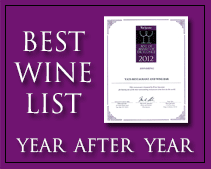Study supports anti-aging effects of red wine ingredient resveratrol
Harvard Medical School biologist David Sinclair and more than a dozen colleagues who study ways to slow aging raised a glass of red wine at the restaurant Catalyst in Kendall Square last week—in a toast to red wine.
It was an early celebration of a study published Thursday, which Sinclair hopes will finally settle a contentious debate that has been running since he showed 10 years ago that a red wine ingredient, resveratrol, lengthened life in yeast.
The influential work immediately captured the attention of the public, prompting many people to start gulping resveratrol supplements by the fistful, and a major drug company to try developing drugs that mimic the wine ingredient to fight diseases of aging.
Meanwhile, research progressed along two streams. One confirmed the importance of the ingredient and similar compounds in prolonging lifespan or improving health in animals such as worms, fruit flies, and mice. But the other raised major questions about how resveratrol worked—or if it even did.
The new study, published in the journal Science, details at a precise molecular level how resveratrol and related substances can activate an enzyme called a sirtuin. These enzymes are thought to be involved in DNA repair, inflammation, circadian clocks, and the creation of mitochondria, the power plants of the cell. Increasing the activity of sirtuins has been shown in some animal experiments to lengthen lifespan—though not in humans.
Sinclair, who is a paid consultant to Sirtris Pharmaceuticals, the Cambridge company he cofounded to hunt for anti-aging drugs, hopes the study will banish the debate about whether the drugs activate sirtuins, allowing the field to move forward. Sinclair also holds patents that are licensed to the company.
“I’ve spent the last 10 years figuring this out,” said Sinclair, who had plaques made for his collaborators as a thank you for their help in untangling the complicated problem. “It almost brings me to tears to think how hard it’s been. There were so many people that didn’t believe in this, that I’m really grateful to the scientists who did stick with us and believe it was right.”
Outside researchers were less enthusiastic. They said the new paper provided a plausible and more nuanced explanation for how resveratrol works, but will do little to clarify the bigger questions in the murky field. The role of a particular sirtuin, called SIRT1, in aging, “is still as clear as mud,” said Brian Kennedy, president of the Buck Institute for Research on Aging, a nonprofit research center in Novato, Calif.
Shortly after the first resveratrol studies were published, outside researchers began to cast doubt on whether the way the researchers had set up the original experiment could have inadvertently influenced their results.
To detect when the SIRT1 enzyme’s activity was kicked into overdrive, Sinclair’s team had attached a fluorescent tag to a molecule that interacted with it. That tag was meant to glow when the enzyme was active—a signal that could be easily seen by the scientists. But outside researchers later showed that the experiment depended on the presence of the artificial tag, which is not found in the body. Without the fluorescent tag, resveratrol did not increase the enzyme’s activity.
In the new study, a team that included researchers from Sirtris rebuts that critique by describing the specific conditions under which the enzyme can be activated without the fluorescent tags.
Next, the Harvard team randomly mutated the SIRT1 enzyme until finding a version that was resistant to resveratrol’s effect, allowing them to understand better the piece of the enzyme that was essential for their compounds to work. Such evidence, Sinclair said, could help scientists design better versions of drugs.
Matt Kaeberlein of the University of Washington, an author of a 2005 study that pointed out the problem with the fluorescent tag, said the new study clarifies the precise biochemical conditions necessary for resveratrol and similar compounds to activate sirtuins. But he said he still had questions about the details of the enzyme’s activity—and about the connection to aging.
“I would gauge the current feeling among the broader field as that sirtuins probably impact a subset of age-related diseases, but it’s still unclear how important they are for the aging process in general,” Kaeberlein wrote in an e-mail.
Researchers deeply involved in sirtuin research, however, see the new work as reinforcing the initial and subsequent findings about the molecules. They note that evidence has accumulated that drugs that activate sirtuins can increase endurance of mice and provide major health benefits.
“I feel not only vindicated by this paper, but by a series of studies in the last year and a half that have shown clearly that sirtuins do regulate aging in a wide variety of organisms, including mammals,” said Leonard Guarente, a biology professor at MIT and a consultant to Sirtris. “I think the pendulum swung way too far in terms of skepticism about sirtuins, and I think now we’re starting to come back to reality.”
George Vlasuk, chief executive of Sirtris, which was bought by GlaxoSmithKline for $720 million in 2008, said the results revealed more about how resveratrol-like compounds work, and are guiding research into how to make new drugs.
“It really puts to rest a lot of the controversy that has been surrounding this area for quite some time,” Vlasuk said.
He said Sirtris is preparing reports of how its compounds fared in two clinical trials, of patients with type 2 diabetes and psoriasis.
http://www.boston.com/news/science/blogs/science-in-mind/2013/03/07/study-supports-anti-aging-effects-red-wine-ingredient-resveratrol/jUzPDw0d2yj7HHUo5kMuDK/blog.html
You can skip to the end and leave a response. Pinging is currently not allowed.







